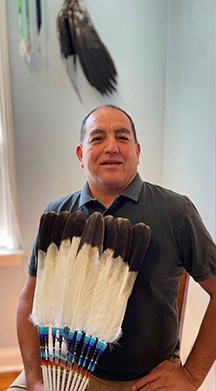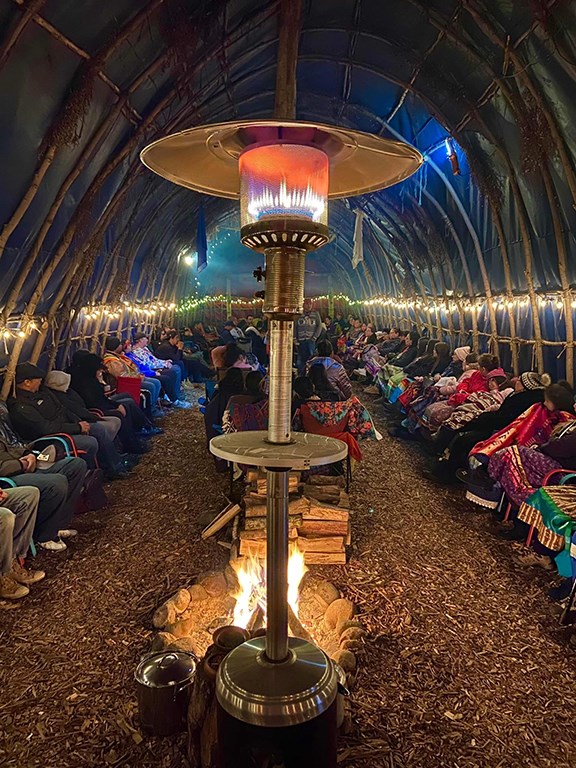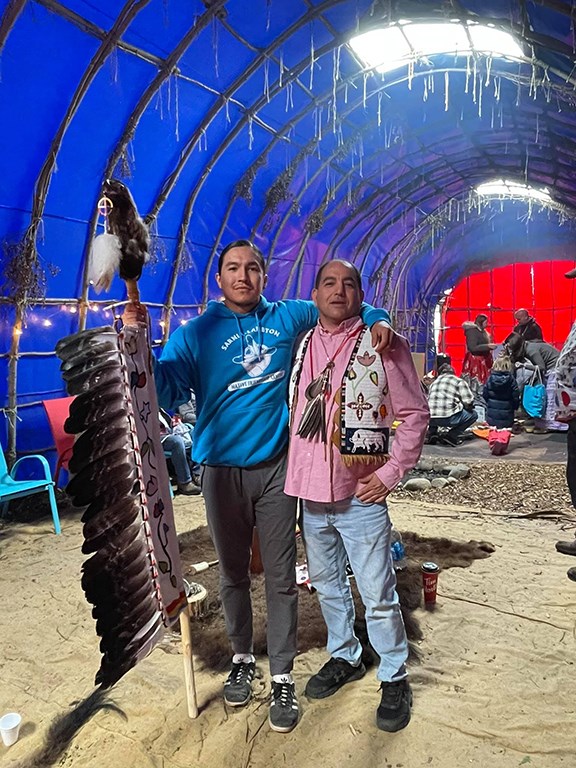Jordan Williams White Eye knows what it is to be an alcoholic, to be the son of a residential school survivor and to be on the wrong side of the law.
But he also knows how to heal. He knows how to rise above adversity and find a path that not only works for him, but also allows him to help many others heal.
He is the leader of Sarnia’s RedPath program that focuses on addictions and living without violence.
And he’s good at it. In fact, the founder of the nationally-recognized program calls Jordan’s work exceptional.

He has played a pivotal role in turning hundreds of local indigenous and non-indigenous lives around, enabling local RedPath participants to stop their substance abuse, hold down jobs, go to school, and even retrieve their children from social services and re-establish families.
At a time when mental health and addictions are rampant, Jordan is leading the way out for many in our community.
“It makes me proud to say Sarnia’s program is one of the most successful we have,” says Peggy Shaughnessy, the Peterborough-based research associate who developed RedPath 20 years ago.
Originally she designed the program for federal penitentiary inmates but it’s now delivered in dozens of communities across Canada to help people determine the root cause of their trauma and understand why they “do what they do.”
Peggy Shaughnessy personally trained Jordan in RedPath’s holistic, group recovery approach.
“A lot of good has come from that,” she said. “Jordan is an exceptional person all around. He was able to embrace RedPath and has had a lot of success with it.”
Jordan grew up on Walpole Island and left home at 18, feeling directionless and on a “rough road.” He tried rehab three times and failed.
He was 36 years old before his healing journey began and he went on to earn a college diploma in native community work, then train to be a RedPath leader.
He says his fourth rehab attempt worked because of the effort he put into it, the wisdom of his teacher, and his first experience with a Thunderbird Sun Dance in Manitoba, a sacred ceremony that reaffirms spiritual beliefs. It changed his outlook.
He says he witnessed the Sun Dance ceremony “give people back their spiritual names, their dances, their songs, so they know who they are and are proud of it.
“I’ve seen people start to cry from happiness because they felt acceptance and understanding,” he said.
Jordan became the caretaker and leader of the Anishnaabe Thunderbird Sun Dance and introduced it to Ontario. Twelve years later in 2021, he organized the first Sun Dance at Sarnia’s Aamjiwnaang First Nation. In 2022, it attracted 250 indigenous and non-indigenous people. This year’s third annual Aamjiwnaang Sun Dance will be held July 29 – August 2 and welcomes everyone.
Preparation is extensive to build a Sun Dance lodge each year and hold the powerful and sacred ceremony. Jordan leads it all with the help of others including his son, Talon White Eye. Not only are people invited who are dealing with trauma, but many local frontline workers attend who work with trauma.

“Sundance is a very big commitment and not easy to do,” said Peggy Shaughnessy. “Jordan has been able to go on his own journey to be healthy and is helping so many others to be healthy too.
“He truly needs to be applauded.”
The healing that Jordan is bringing to the Sarnia-Lambton community should be recognized, agreed Myles Vanni, executive director at the Inn of the Good Shepherd.
He hired Jordan 12 years ago as the Inn’s native liaison worker and to lead the RedPath program.
“Jordan has developed a reputation and is held in high regard,” said Myles. “He’s been doing education and speaking engagements at universities and the Aylmer Police College where he is a lead resource and spiritual advisor.”
RedPath has expanded under Jordan’s watch to address addictions as well as living without violence.
“It’s not about surface healing and putting a Band-Aid on the situation,” Jordan said.
The work can be really draining and frontline workers like him need to take care of themselves.
But it’s worthwhile because he sees tangible results, he added.
“We aren’t in this life a long time, so we have to do this work, as difficult as it can be.
“Ceremonies and personal care like going to a sweat lodge every month lets me continue and that’s important,” he said.
“I do it for our children and for future generations.”
Who do you consider an exceptional person in Sarnia-Lambton? Nominate someone you know and explain why you think they should be The Journal’s Exceptional Person of the Week. Email [email protected].

